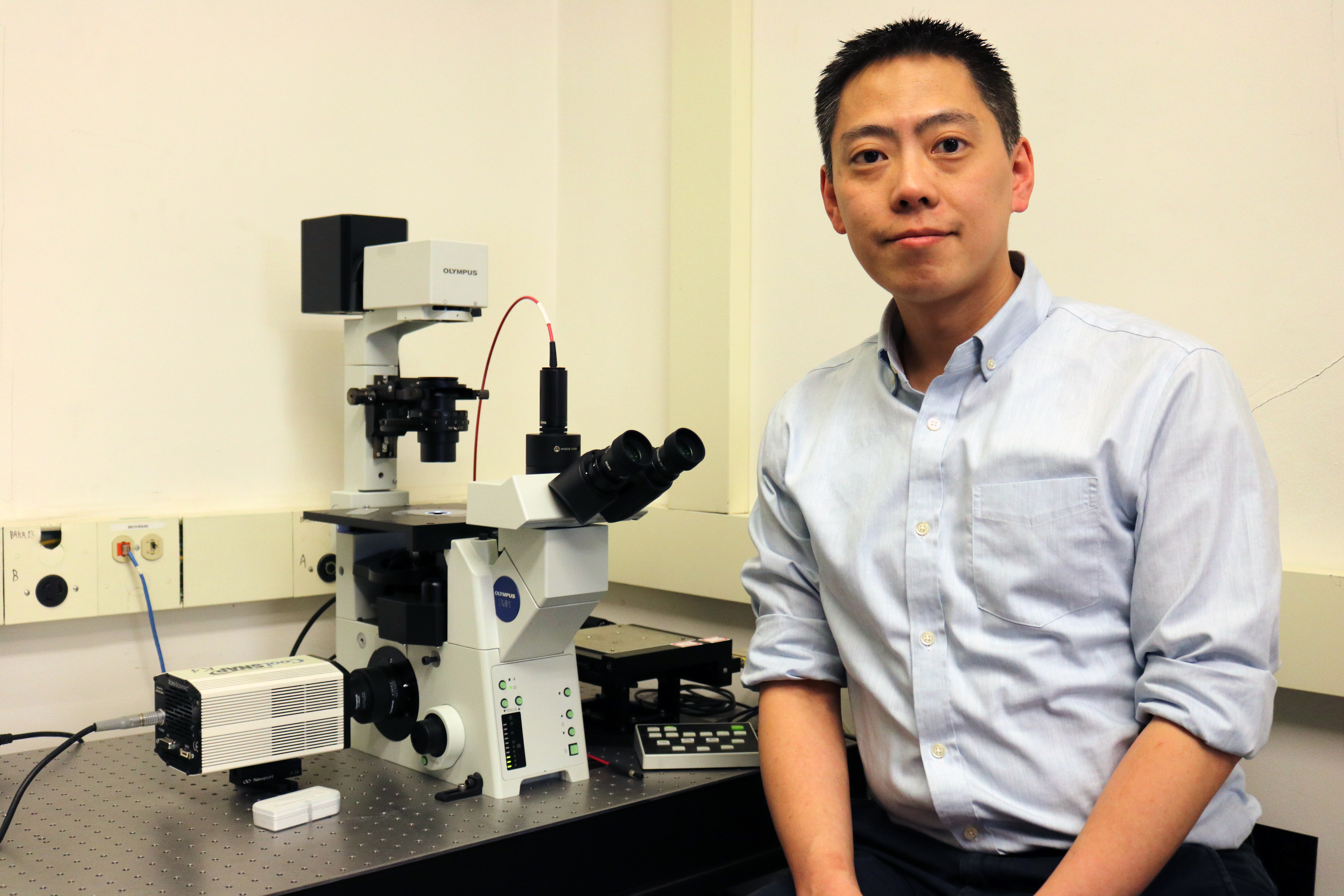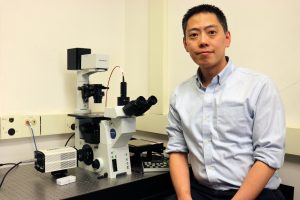
Meng Lu, assistant professor with Iowa State University’s Electrical and Computer Engineering (ECpE) and Mechanical Engineering Departments, has received the National Science Foundation’s CAREER award for a project that aims at developing the next generation diagnostic technology using an engineered paper strip. The technology has the potential to drive down the cost of the health care system. The five-year award will fund Lu’s group to pursue the interdisciplinary research through 2022. The National Science Foundation (NSF) grants CAREER awards, some of the most competitive honors from the organization, once a year to standout junior faculty members who positively represent the mission of their department through their teaching and research. According to the NSF website, “Such activities should build a firm foundation for a lifetime of integrated contributions to research and education.”
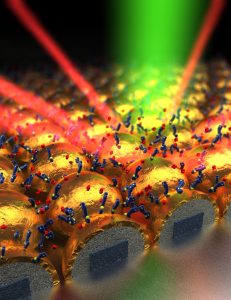
With his award-winning proposal, “We will establish a low-cost, high sensitivity, multiplexed, rapid sensor paradigm, in conjunction with a new readout modality that can perform biomarker analysis for clinical disease diagnostics,” Lu said. In other words, he and his students hope to bring state-of-the-art diagnostic technology to patients’ homes and help physicians collect the healthcare information more efficiently in times of need. “We make the special paper, so-called photonic paper, that integrates photonics and microfluidics on a porous material found in most papers,” Lu said. “It allows point-of-care or bedside detection so the patient doesn’t have to go to a hospital. The procedure can be performed by the patient at home.” The photonic paper-based biosensors would detect multiple disease biomarkers found in human body fluids to provide timely warnings and would work especially well for people with limited access to resources, such as deployed members of the military, astronauts or those living in developing countries. The sensor is disposable and low in cost, which also makes it practical for use anywhere, and it can be modified for detecting hepatitis, tuberculosis, HIV and cancer.
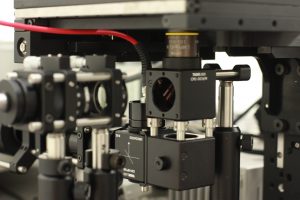
According to Lu, “To date, the poor sensitivity and high cost are still the key challenges prohibiting a practical point-of-care diagnostic test based on quantifying low-abundance disease biomarkers.” Lu’s group is working with Douglas Jones, professor of Iowa State’s College of Veterinary Medicine, and John McClelland of MTEC Photoacoustics, Inc., to address these challenges. Lu hopes to work with doctors and physicians in clinics. “We are working with MTEC Photoacoustics to pursue the new biosensing mechanism. We collaborate with Professor Jones — they send us their sample, and we do the test,” Lu said. “So far, we are not allowed to do the patient test. That’s why we will do more collaborations, which is funded in part by NSF, to optimize the photonic paper.” Because this is a CAREER award, Lu is honored not only for his current proposal but also for the entirety of his time spent at Iowa State. He began working at ISU in January 2013, teaching Electrical Engineering 332: Semiconductor Materials and Devices and Electrical Engineering 432/532: Microelectronics Fabrication Techniques. He then took on the Mechanical Engineering course ME 370: Engineering Measurements and Instrumentation. Now, Lu is developing a course for Electrical and Biomedical Engineering, called EE/BME 450: Biosensing, which relates to his research; the course teaches students how to design, evaluate and commercialize biosensors.
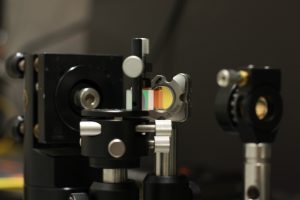
Outside of the classroom, Lu is the principal investigator for ISU’s Laboratory of Integrated Optical Sensors (LIOS), which sponsors research for undergraduate and graduate students from electrical engineering, mechanical engineering and material science. These researchers work with Lu on projects in the field of photonics, nanofabrication and biosensors. The funding from the CAREER award will go toward more research opportunities for Lu and his graduate students, as well as toward education and outreach for K-12 and undergraduate students and those in Midwestern agricultural communities and of underrepresented minorities. Lu has authored and co-authored more than 80 journal and conference papers, as compiled on the LIOS website. He credits his graduate students for their help, too, with the research and with the recognition from NSF. “My students are fantastic, and they work pretty hard,” Lu said. “I feel very lucky to have them in the group. The results of their works helped me secure the CAREER award.”
